My research on U.S. Marine Corps women
As for women in the Marine Corps, they were certainly not obvious or evident. Few Americans realize that over 8,500 women serve as active Marines. Early in his career, my son, a combat infantry Marine, had only encountered women Marines on rare occasions; as motor pool drivers, clerical workers, an occasional armory NCO (non-commissioned officer). He jokingly called them 'pogues', which doesn't refer to the women, only the fact that these MOS (military occupational specialties) are not infantry and thus in support. That moniker reflected the stereotype that women were not on the front lines and certainly not in combat roles. Later he began to see them as air rescue pilots and field medical personnel and thus 'in the line of fire’.
As I traveled to Marine bases and to urban warfare training exercises in cities throughout the U.S., I met more and more Marines who happened to be women; officers and enlisted Marines of all ranks and ethnic backgrounds, from ages 18 to 50. As a writer, I wanted to hear their stories. I wasn’t interested in war stories or politics, just why they chose to be Marines and how they viewed their place in the mystique of the U.S. Marine Corps.
Women have served as Marines since 1918. It took 95 years for women to be allowed to officially serve directly in combat units. Until their prodigious contributions to the recent wars in Iraq and Afghanistan, they were not seen overseas in war zones. To learn about them, I had to go to Iraq to see them in action.
Delving into what makes a woman want to be a Marine, I listen for offhand, even unwitting reasons.
What were their answers? "The Marines are the biggest challenge I could imagine." Many said because it was the hardest, most elite, toughest training in the military. "To be independent, financially, physically, mentally." Some talked about avoiding the aimlessness and pitfalls of civilian life, or wanting to have a leg up on college tuition when they got out. They join not to push boundaries, as in feminism or athletic prowess, but mostly personal interest and passion. Nobody jumps into the hell of Boot Camp for the fun of it.
Col Jenny Holbert became a friend after my repeated research jaunts to Marine Urban Warrior operations where she was in charge of Public Affairs. When she deployed to Iraq as PAO chief for Anbar Province, I peppered her with emails asking how many Marine women were deployed and what their MOS (military occupational specialties) were.
I was interested in knowing what women Marines were doing in a combat zone when they were prohibited from serving in combat. She replied that I would have to come see for myself. She arranged for me to be vetted by the army, I booked a flight to Baghdad by way of Kuwait, and embedded with the 1st MEU in Camp Fallujah and Camp Taqqadum in February, 2005. The result was The Few. The Proud. Women Marines in Harm's Way, published by Praeger Security International in 2007, the first compilation of interviews with Marine women serving in a combat situation.
As for Marines at war: I'm not interested in how or why the war started. I want to know who collects Marine casualties from the battlefield, and who delivers mail in a war zone. How do they supply yogurt and fresh lettuce for the chow halls, and who cleans the many thousands of porta-potties the troops use in Iraq? And what about the billions of empty plastic water bottles? What happens to them? How many Marine women are there, anyway? What dangers did Marine women face driving ammo supply trucks into battle? Or taking control of detainees and getting them out of battle? Searching Iraqi and Afghani women for explosives and weapons at check points? If they couldn't serve in combat, what were they doing in Iraq, which was one big combat zone?
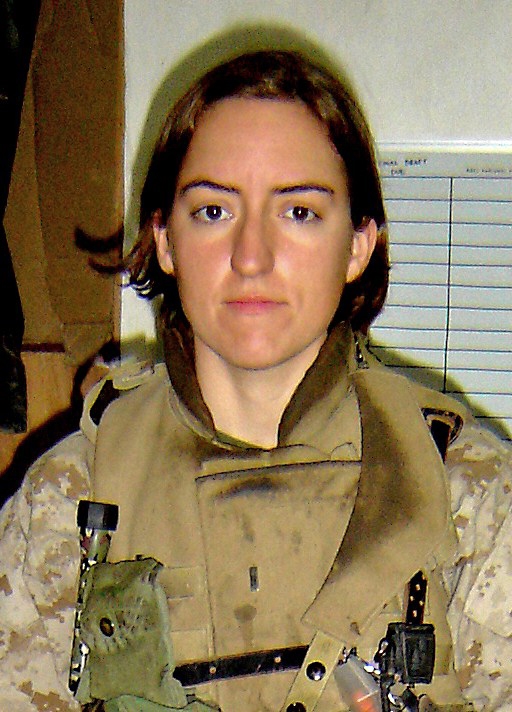
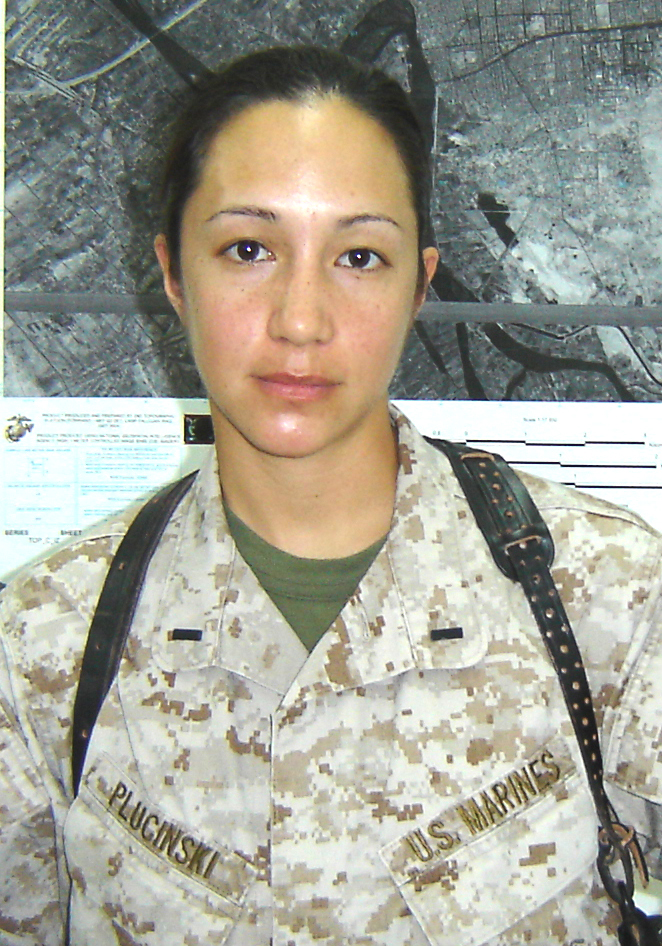
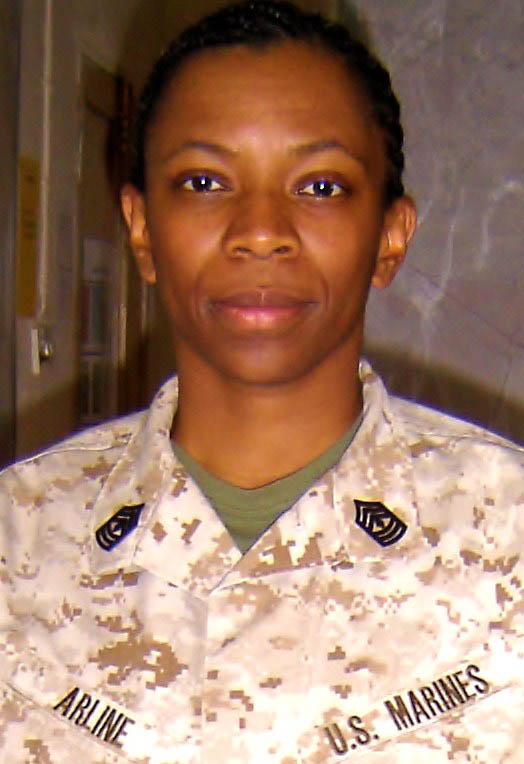
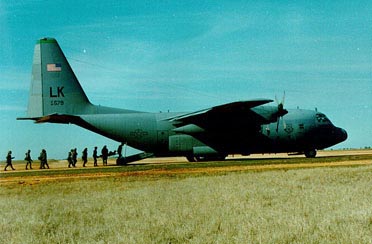
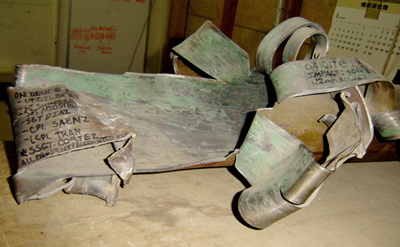
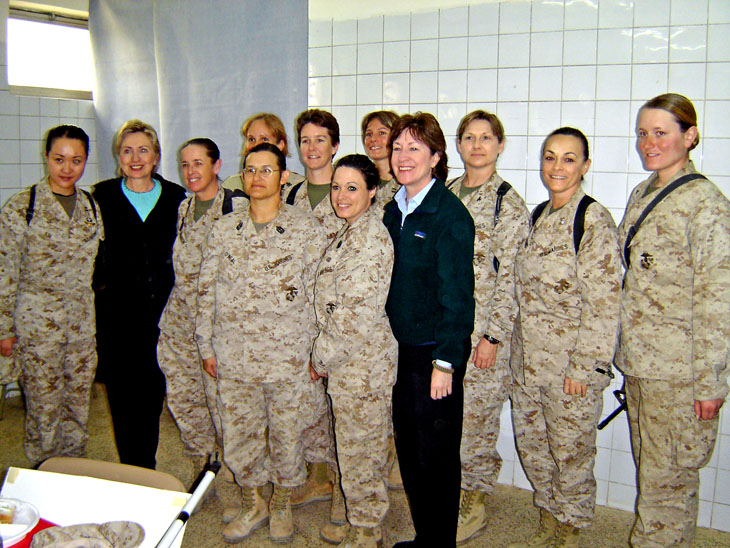
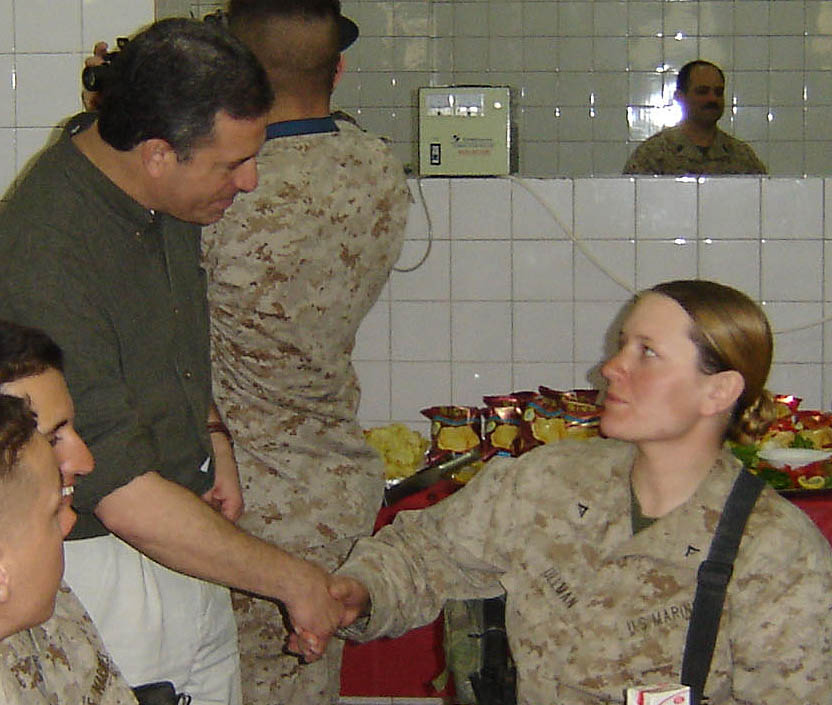
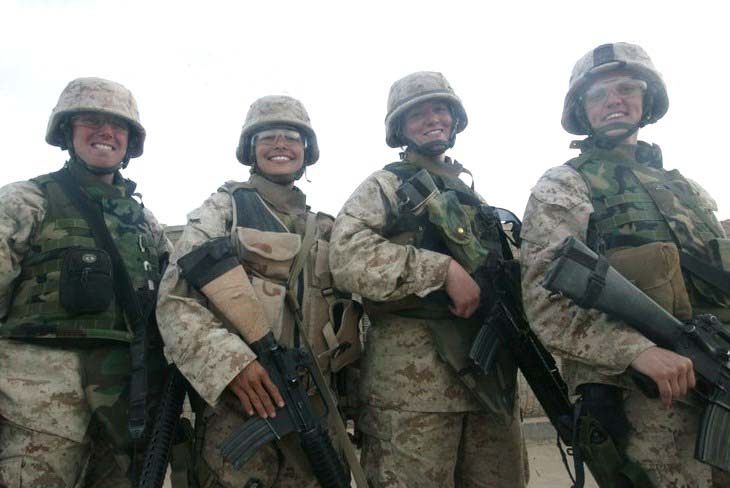
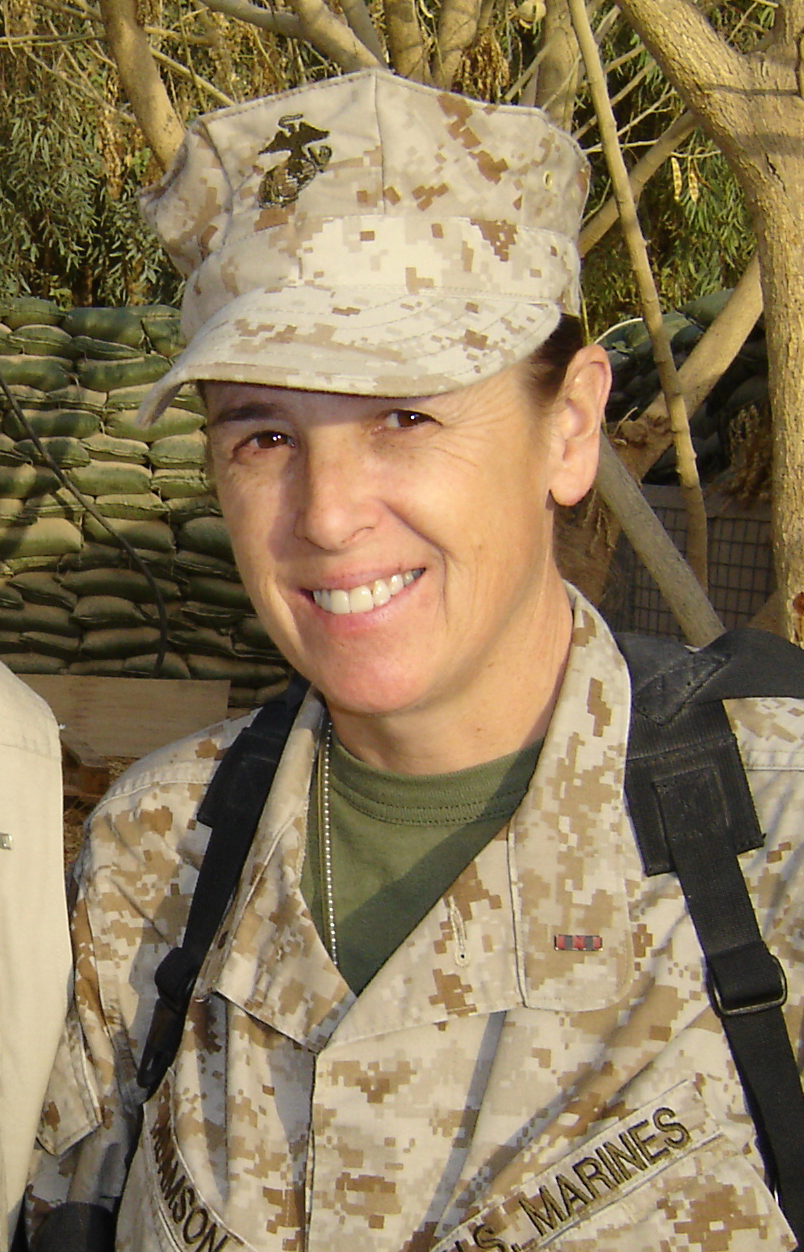
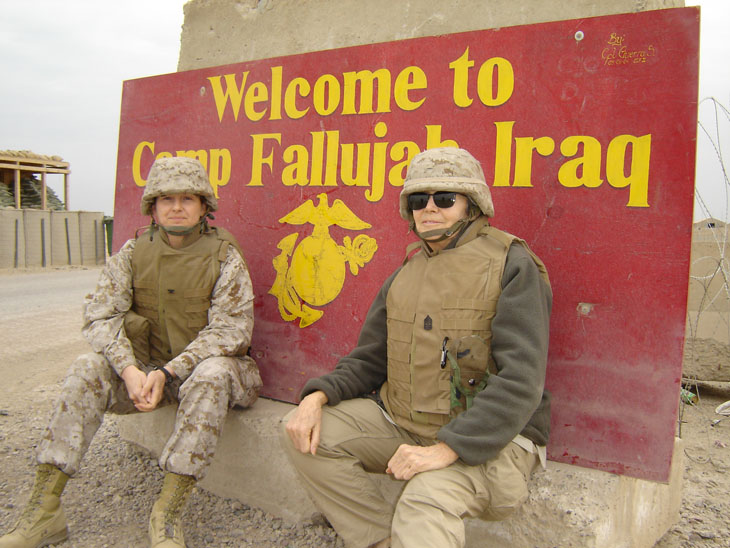
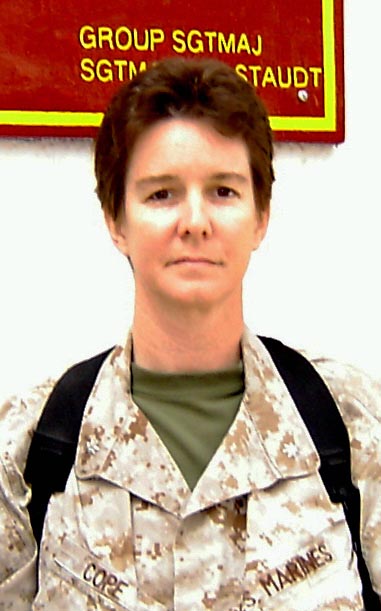
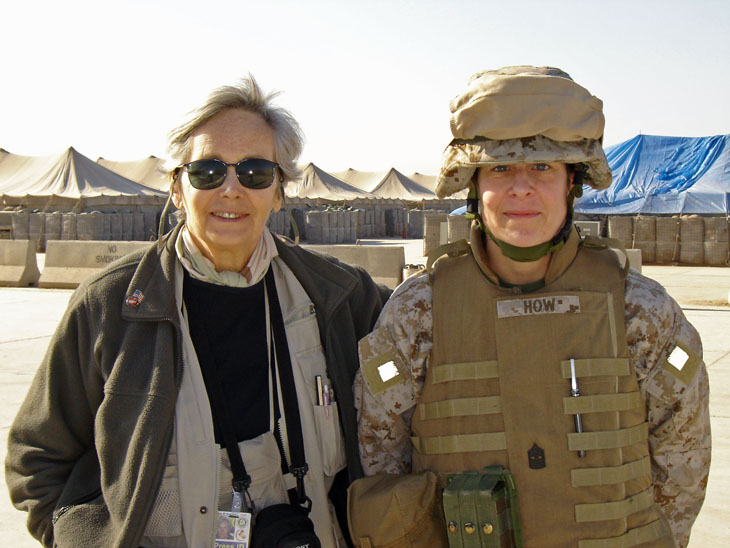
Sara Sheldon Received the THE COLONEL JULIA E. HAMLET AWARD in 2016 for her work with female Marines
The Marine Corps Heritage Foundation recently announced the recipients of the Foundation’s 2016 Annual Awards. The awards program, a beloved tradition of the Foundation, awards creative, artistic expression that depicts Marine Corps culture and history through a broad range of fields. The 2016 recipients were recognized during the Annual Awards ceremony on Saturday, April 23, 2016 at the National Museum of the Marine Corps.
THE COLONEL JULIA E. HAMBLET AWARD is named for the longest serving Director of Women Marines and funded by a bequest from the estate of Lotus Mort and judged by the Women Marines Association. It is given to the individual or team who has done the most to further the recognition of the history of women who have earned the title Marine.
The award is given this year to Sara Sheldon. Sara’s involvement with the Corps began when her son enlisted. She became the first woman relative of an enlisted Marine allowed on a tiger cruise aboard the USS Tripoli returning from the Middle East. In 2005 she embedded with the 1st Marine Expeditionary Unit in Fallujah, sharing quarters, convoys, and experiences with the women serving there, the inspiration for her book, “The Few, the Proud, Women Marines in Harm’s Way.” She continues to take an active role in the preservation of women Marine history, serving on academic and historical boards, writing and conducting research.

